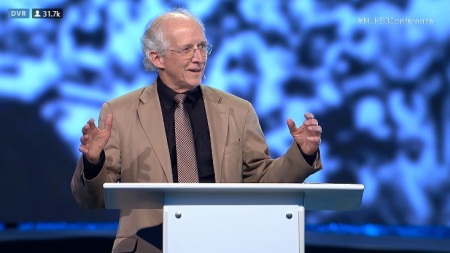Is it OK for a Christian to attend Alcoholics Anonymous meetings?

Theologian John Piper recently expressed some spiritual concern about the famous Alcoholics Anonymous 12-step program for recovering from addiction.
In an episode of the podcast “Ask Pastor John,” a listener named Tanya asked about the A.A. program, as it had helped her recover from alcoholism.
“I’m five years sober from alcohol because I went to A.A. and was miraculously delivered from the desire to drink. I was, and am, a born-again believer,” inquired Tanya.
“However, I’m now hearing that it is wrong for a Christian to attend A.A. I only want to do the right thing before the Lord. I have entered a deeper relationship with God through A.A. and am always at liberty to declare that my ‘higher power’ is Jesus Christ. I would greatly appreciate your thoughts on the matter.”
Piper responded by noting that he did not object to Christians attending A.A. meetings and pointed out that the roots of the program “are in the Christian tradition.”
“The founders, Bill Wilson and Bob Smith, were members of a Christian revival organization called the Oxford Group,” explained Piper.
“With this much outward similarity to the way Christians overcome sin, it’s not surprising to me that the 12 steps have and can be amazingly helpful for those moving out of addiction to alcohol.”
However, Piper did take issue over the non-sectarian nature of the 12-step program, stating that “the most serious omission of A.A. is not that the higher power is unnamed.”
“Tanya says that she sees Jesus as her higher power. Well, that’s good. But the most glaring omission is the entire transaction between God and man in Christ Jesus at the cross. The cross is missing. The atonement for sin is missing,” said Piper.
“Without this — a grasp of this vertical alienation between us and God and the price paid on the cross to overcome that alienation — even adding the name God or Jesus to the higher power will become a religious technique rather than an act of redemption …”
Piper concluded by noting that his prayer for Christians who used the program was that they “would give thanks to God for his great grace in using A.A. to help them.”
“And then my prayer is that they would go deep into the distinctive, precious, powerful way that the Bible glorifies Christ and his cross in how we fight sin as blood-bought, justified, forgiven children of God,” he added.
According to its own website, A.A. states that it is “not a religious society,” yet it remains “deeply indebted to members of the clergy of many faiths who have befriended the Fellowship since its founding in 1935.”
“It would be unrealistic to assume that all A.A. members are spiritually inspired. Many, too, are not committed to a formal body of religious doctrine,” the site explained.
“But innumerable A.A. members—including those of no orthodoxy—say that they have experienced the transforming power of sharing, caring, trust and love.”
The Christian apologetics website Got Questions has also critiqued the A.A. program, stating that while the program has helped many people with their addictions, the steps “fall far short of actually being in line with biblical truths.”
“Confession (Steps 1, 5, 8, 9) is not of sin and the need for a Savior (Romans 3:10-18; 5:8), but rather a recognition of having done harm to the alcoholic himself and to others. God, as the alcoholic understands him/her, is asked to remove ‘defects of character’ (Step 6) and ‘shortcomings’ (Step 7),” stated Got Questions.
“The Bible is clear that sin is not simply a shortcoming or character defect, but a fatal wound which is only cured by the blood of Christ shed on our behalf (Ephesians 2:1-5).”
They also took issue with step 11, as it encourages “prayer and meditation to improve our conscious contact with God as we understood Him.”
“Praying to, or meditating on, any god other than the true God of the Bible through Christ, the Mediator, is of no spiritual value,” continued the apologetics site.
“Even if the alcoholic sobers up and remains so throughout his/her lifetime, only faith in Christ for salvation from sin will ensure an eternity of peace and glory in heaven.”





















